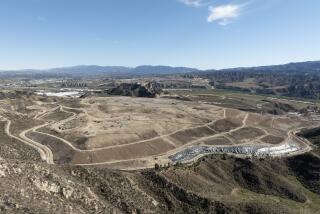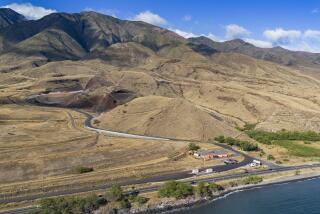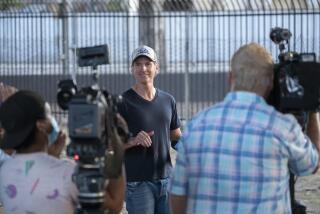Quake Debris Pickup Enters Final Phase
Tuesday was the last day to schedule an appointment for Los Angeles city waste haulers to pick up debris from the Northridge earthquake.
Although city Earthquake Debris Removal Program trucks will continue picking up the piles of mostly concrete, wood and glass left in front of quake-damaged structures until July 17, homeowners and building contractors who did not call the program hot line for a pickup must now arrange private disposal--or run the risk of a $1,000 fine.
“We will still keep [the hot line] open,” said Janet Ervin, a senior management analyst for the quake program’s bureau of engineering. “But we can no longer promise that we will be able to pick up everyone’s trash. Those who call in now will be put on a reserve list. However, owners of trash found on the streets after July 17 will be cited.”
Since the city announced the end of the program two weeks ago, operators have been swamped with about 300 calls per hour, Ervin said. Last Friday, about 2,000 requests for refuse pickup were received--up dramatically from the normal 500 calls per day.
“Now that the program is ending, suddenly more people are calling,” she said. “As with paying income taxes, many have waited until the last minute.”
However, said Ervin, problems faced by some building owners trying to repair quake damage have also contributed to the last-minute surge of calls. “Condominium owners have been a lot slower than regular homeowners in getting reconstruction started because they are multiple-owned,” Ervin said.
According to Earthquake Debris Removal Program figures, more than 2 million tons of earthquake-related trash has been collected since the program began 15 months ago--at a cost of about $218 million.
Most of the trash collected initially went directly to private landfills in Los Angeles County. But since March of 1994, about 80% of the refuse has been recycled, said Louis Utsemi, an environmental associate for the city’s Department of Public Works.
“We were able to convince a lot of disposal facilities in the area to expand their recycling efforts,” Utsemi said.
More to Read
Sign up for Essential California
The most important California stories and recommendations in your inbox every morning.
You may occasionally receive promotional content from the Los Angeles Times.










